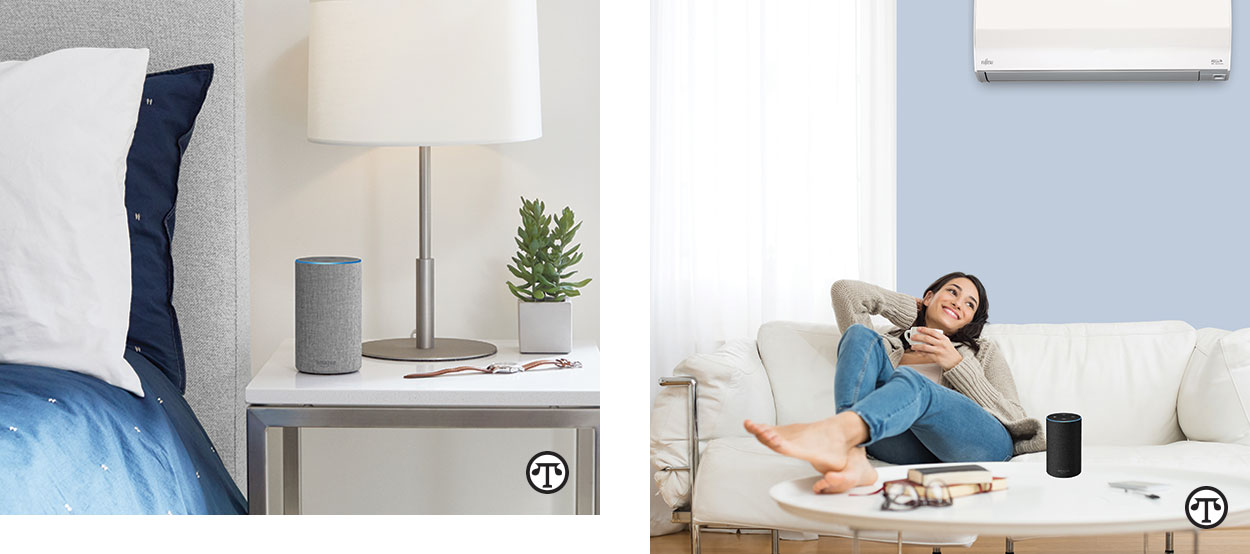
You can be cool and comfortable at home without getting hot under the collar because of your utility bills.
(NAPSI)—As temperatures rise, homeowners can beat the heat by combining “smart” home climate control technologies with the latest air-conditioning systems to heighten energy efficiency and take customized comfort to new levels.
With home cooling accounting for nearly half of all energy use, costing homeowners more than $11 billion each year, it’s clear why the American smart home marketplace is exploding. In fact, the industry is expected to reach $46.2 billion in 2018 and $112.8 billion by 2022. Household penetration is 32 percent and is predicted to reach 53 percent by 2022, with an annual growth rate of nearly 15 percent.
What Is “Smart” Home Climate Control?
What is a smart home? A home with Internet-connected “smart” products used to control, automate and optimize functions such as lighting, security, entertainment and temperature either remotely by a mobile device, smart speaker or separate home system.
When it comes to smart home temperature control, there are Smart HVAC Systems and Smart Thermostats. Smart HVAC systems have built-in Internet capability and can be controlled directly without additional equipment. Smart Home Thermostats create “smart” systems by enabling remote temperature control via a mobile or Internet-connected device or voice-operated home automation system. Several leading manufacturers, including Fujitsu General America, offer Smart Systems as well as a Thermostat Converter, which can control their single and multizone Halcyon and Airstage heating and cooling systems using a third-party thermostat.
Boost Energy Efficiency, Lower Bills Up to 25 Percent
Upgrading your system and installing a smart home thermostat can significantly reduce your utility expense. The most energy-efficient heating and cooling products on the market, ductless mini-split systems, can save as much as 25 percent on your energy bill. Further, an efficiently controlled thermostat could save an additional 10 percent a year.
Here’s how ductless mini-split systems work. Thin copper tubing is used to pump refrigerant from an outdoor compressor directly into an indoor air-handling unit, where the air is quietly distributed to the interior space. This eliminates the need for basement or attic evaporators and bulky, expensive ductwork. Mini-splits are easy to install and usually require only a 3- to 4-inch hole through a wall or ceiling to connect the indoor and outdoor units.
Customized Home Comfort Control
Take control of your comfort. Most HVAC manufacturers offer apps that enable systems to be controlled from anywhere using a mobile device. Now, voice-control capability uses digital assistants, like Amazon Alexa, to verbally dictate home temperatures—“Alexa, set the living room temperature to 70 degrees.” For instance, Fujitsu offers a free FGLair app that enables Web-activated control via mobile devices and now voice-activated control via Amazon Alexa.
Built for optimal customization, ductless mini-split systems let you control the individual temperature in each room, so you don’t waste money cooling unused spaces such as guest bedrooms, bonus rooms, sunrooms and basements. Ductless systems operate at much higher efficiency levels than central forced-air systems and window units, as duct losses in a central AC system can account for more than 30 percent of your energy consumption.
The smart home revolution has empowered homeowners with the latest home cooling systems and smart technology to create the perfect storm of cost and energy efficiency and customized comfort. Many Fujitsu systems with the Energy Star rating are more than twice as efficient as the minimum standard set by the government.
To learn more or find a contractor nearby, call (888) 888-3424 or visit www.constantcomfort.com or www.fujitsugeneral.com.
“Upgrading your HVAC system with Fujitsu General America Smart Systems can significantly reduce your utility expense. http://bit.ly/2NYgXsI”
